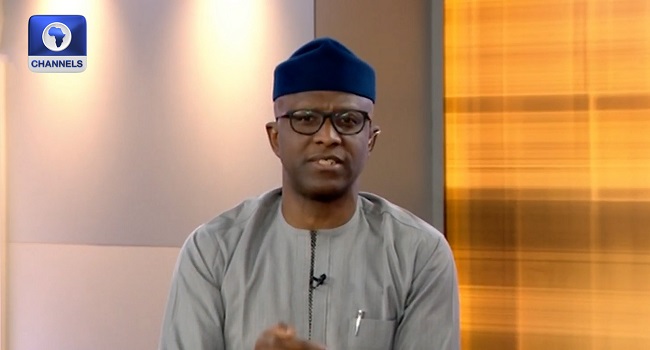Former presidential aide, Laolu Akande, has called on President Bola Ahmed Tinubu to implement bold reforms that would transform Nigeria’s struggling economy, emphasizing the urgent need for empowering small and medium enterprises (SMEs) as the bedrock of sustainable growth.
Speaking on the My Take segment of Inside Sources with Laolu Akande on Channels TV on Sunday, Akande offered a candid assessment of Nigeria’s economic challenges while proposing actionable steps for recovery.
Reflecting on 2024, Akande noted that Nigeria’s current economic woes stem from decades of poor leadership and systemic failures. “It is now the burden of President Bola Ahmed Tinubu to lead us out of this quagmire,” he said, adding that the hardship experienced by Nigerians this year has been “very troubling.”
With inflation soaring at 34.60% and food inflation even higher at 39.93%, Akande warned that projections for 2025 are equally dire. He cited reports predicting that over 30 million Nigerians could face food insecurity, a 30% increase from 2024 levels.
To address these challenges, Akande stressed the importance of supporting micro, small, and medium enterprises (MSMEs and SMEs) as engines of economic growth. “Nothing short of a dramatic and massive bailout for MSMEs and SMEs ought to be on the table,” he said, arguing that the 2025 budget presented by the president falls short of meeting this critical need.
While commending Tinubu’s focus on attracting foreign direct investment, Akande cautioned that no country can thrive without prioritizing its SMEs. He called for a transformative overhaul of institutions such as the Bank of Industry (BOI), Small and Medium Enterprises Development Agency of Nigeria (SMEDAN), and other related MDAs to effectively support and calibrate small businesses.
Akande also highlighted the crippling effects of Nigeria’s inadequate electricity supply, noting frequent national grid collapses that disrupt businesses and families alike. He urged the Tinubu administration to take bolder steps in diversifying power sources, including the Siemens initiative, solar energy projects, and alternative grids.
Another area of concern was the delayed implementation of the Oronsaye report, which aims to streamline and reduce the cost of governance. “It has taken several months since you directed its implementation,” Akande reminded the president, emphasizing the need for immediate action.
Akande also called for the removal of outdated colonial-era laws that continue to oppress Nigerians. He urged Attorney-Generals at both federal and state levels to ensure these statutes are expunged. Using the recent bail granted to activist Dele Farotimi as an example, Akande stressed the need to affirm citizens’ rights and end abuses of power.
Turning to recent tragedies, Akande expressed condolences to the families of victims in the Ibadan stampede that claimed over 30 young lives, as well as incidents in Okija, Anambra, and Maitama, Abuja. He welcomed the president’s directive for thorough probes and urged state governments to ensure accountability and prevent future disasters.

 Join Daily Trust WhatsApp Community For Quick Access To News and Happenings Around You.
Join Daily Trust WhatsApp Community For Quick Access To News and Happenings Around You.


